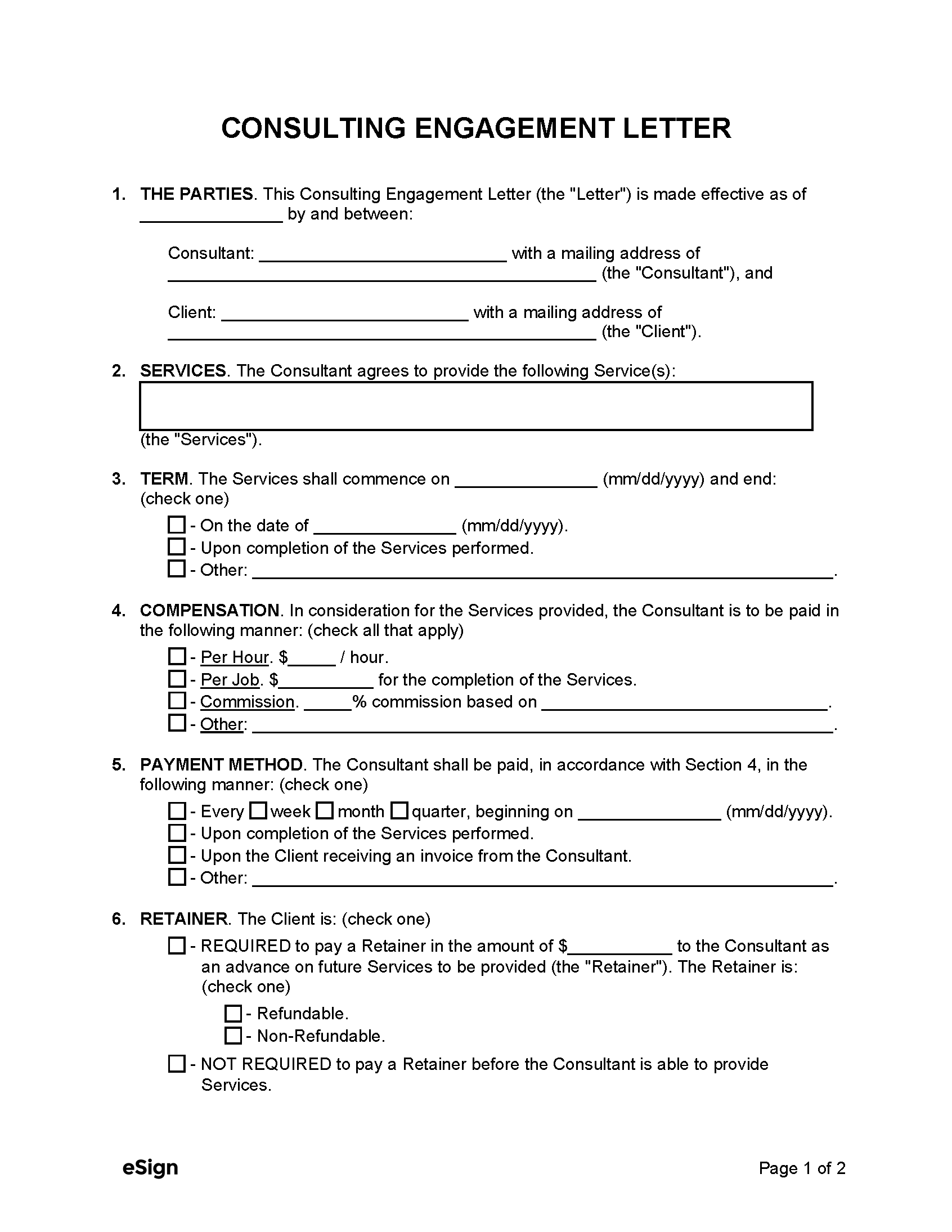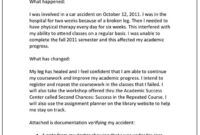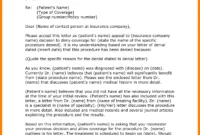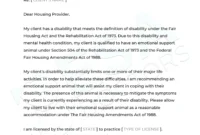Starting a new consulting project is always exciting. You are bringing your expertise to help a client achieve their goals, solve a problem, or improve their operations. However, amidst that initial enthusiasm, it is incredibly important to lay a solid foundation for the engagement. Clear communication from the outset is not just good practice; it is essential for a successful partnership and for safeguarding your business.
This is where a well-drafted engagement letter comes into play. Think of it as the roadmap for your project, outlining everything from the scope of work to payment terms. It clarifies expectations for both you and your client, minimizing misunderstandings and providing a professional framework for your services. Without one, you could face scope creep, payment disputes, or simply a lack of clarity that can strain even the best working relationships.
Why a Solid Engagement Letter is Your Consulting Business’s Best Friend
A robust engagement letter serves as the cornerstone of any successful consulting project. It is more than just a formal document; it is a critical tool for risk management, expectation setting, and ensuring professional transparency. By clearly articulating the terms of your service, you protect both your interests and those of your client, fostering an environment of trust and mutual understanding right from the start. This proactive approach can save countless hours of potential dispute resolution later on, allowing both parties to focus on achieving the project’s objectives.
One of the primary benefits is the crystal-clear definition of the scope of work. Vague agreements often lead to “scope creep,” where the project’s boundaries expand without corresponding adjustments to fees or timelines. An engagement letter precisely outlines what services you will provide, what deliverables are expected, and any limitations or exclusions. This clarity helps manage client expectations, ensuring they understand exactly what they are paying for and what they can expect to receive. It empowers you to stick to the agreed-upon tasks, avoiding pressure to perform additional, unpaid work.
Beyond the scope, the engagement letter meticulously details the financial aspects of your consulting services. This includes your fee structure, whether it is a fixed fee, hourly rate, or retainer, along with the payment schedule, invoicing procedures, and terms for late payments. Having these crucial financial details explicitly documented prevents any ambiguity or disagreement regarding compensation, which can be a common source of conflict in client relationships. It also provides a professional basis for enforcing payment terms, if ever necessary.

Furthermore, a comprehensive engagement letter covers vital legal and operational considerations. It addresses intellectual property rights, specifying who owns the work product created during the engagement. Confidentiality clauses protect sensitive information exchanged between both parties. It also includes provisions for project termination, outlining the circumstances under which either party can end the agreement and what obligations remain. This foresight provides a safety net, ensuring that even if things do not go as planned, there is a clear process to follow. Leveraging an excellent engagement letter template for consultants can provide a strong foundation for these critical discussions.
Key Elements to Include
- Client and Consultant Identification: Full legal names and contact information for both parties.
- Scope of Services: A detailed description of the services to be provided, including specific tasks and objectives.
- Deliverables and Timeline: A clear list of expected outcomes or work products and the schedule for their completion.
- Fees and Payment Schedule: The total cost, hourly rates, or retainer fees, along with invoicing frequency and payment due dates.
- Intellectual Property Rights: Clauses specifying ownership of work product created during the engagement.
- Confidentiality Clauses: Agreements to protect sensitive information shared between parties.
- Termination Provisions: Conditions under which the agreement can be ended by either party and any associated responsibilities.
- Governing Law: The jurisdiction whose laws will govern the agreement.
Crafting Your Own Engagement Letter: Beyond the Template
While a robust engagement letter template for consultants provides an invaluable starting point, the true strength of your agreement lies in its customization. Every consulting project is unique, with its own set of objectives, challenges, and client personalities. Simply copying and pasting generic clauses might cover the basics, but it will not adequately address the specific nuances of your particular engagement. Taking the time to tailor the template ensures that the document truly reflects the understanding between you and your client, making it far more effective as a guide and a protective measure.
One crucial aspect of customization is aligning the scope of work with the client’s specific needs and the agreed-upon project outcomes. Instead of broad statements, delve into the precise deliverables, key performance indicators, and any specific technologies or methodologies you will be employing. This level of detail ensures that both parties have a shared vision of success and minimizes the potential for misinterpretation or disagreements about what constitutes a finished project. It also provides a benchmark against which progress can be measured.
Furthermore, personalize the payment structure and milestones to suit the project’s duration and complexity. For a short, defined project, a fixed fee with an upfront deposit and final payment might be appropriate. For longer, phased engagements, linking payments to specific project milestones can motivate both parties and align financial incentives with progress. Discussing these elements openly with your client during the proposal stage and then reflecting them accurately in the engagement letter builds trust and transparency.
Remember that an engagement letter is a living document during its negotiation phase. It is perfectly acceptable, and often advisable, to iterate on the draft with your client. Encourage them to review it thoroughly, ask questions, and suggest modifications. This collaborative approach ensures that the final document is mutually agreeable and that both parties feel ownership over its terms. It is also wise to consider seeking legal counsel for particularly complex or high-value engagements, ensuring that all legal implications are properly addressed and that the document is fully enforceable.
Ultimately, a thoughtfully customized engagement letter elevates your professionalism and demonstrates your commitment to clarity and fairness. It transitions from being just a piece of paper to a foundational agreement that supports a strong, transparent, and successful consulting relationship. This bespoke approach, built upon a reliable engagement letter template, empowers you to confidently navigate your projects, secure in the knowledge that your terms are clear and your business is protected.
Embracing the use of a comprehensive engagement letter is more than just good business practice; it is a fundamental step toward building a successful and sustainable consulting career. It provides clarity, protects your interests, and fosters trust, allowing you to focus on delivering exceptional value to your clients. By investing the time to draft a clear and thorough agreement, you are setting yourself and your projects up for success from day one, ensuring every engagement begins on the right foot and progresses smoothly.



